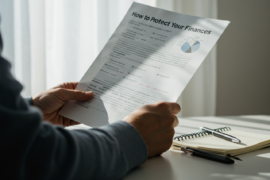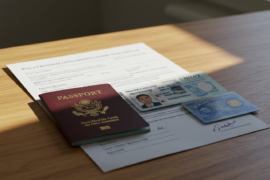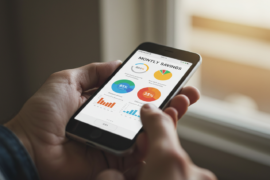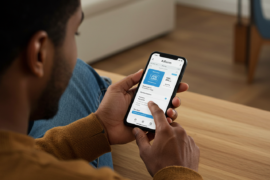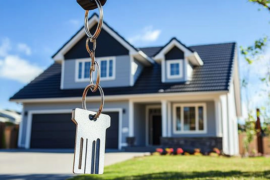This article may contain references to products or services from one or more of our advertisers or partners. We may receive compensation when you click on links to those products or services. Nonetheless, our opinions are our own.
It is normal to experience periods of disconnection during a relationship, which can make you feel alone or uncertain about your connection to your partner. You may question the depth of your emotional connection, wondering if the love that once felt vibrant has faded into the background. Recognizing the signs of a lack of emotional intimacy can be crucial for understanding where you stand and how to navigate the complexities of your partnership. We’ll explore the subtle indicators that might suggest a growing distance between you and your loved one, offering insights to help you identify and address these feelings. Together, we’ll explore the layers of emotional connection, empowering you to foster a more fulfilling relationship.
- Recognizing Emotional Disconnection in Your Relationship
- Understanding the Signs: Is Your Partner Feeling Distant?
- Exploring Communication Gaps: Breaking Down Barriers
- Rebuilding Emotional Intimacy: Practical Steps to Connect
- The Role of Vulnerability in Strengthening Bonds
- Creating Lasting Change: Strategies for a Deeper Connection
-
Frequently Asked Questions
- What are the common signs of emotional disconnection in a relationship?
- How can I tell if my partner feels the same way?
- Is it normal for relationships to go through phases of disconnection?
- What steps can I take to reconnect emotionally with my partner?
- When should I seek professional help for emotional disconnection?
- Can emotional disconnection lead to more severe relationship issues?
- What can I do if my partner resists talking about our emotional distance?
- Recommended Reads
Recognizing Emotional Disconnection in Your Relationship
It’s easy to overlook the subtle signs that indicate a waning emotional connection in your relationship, especially when life gets busy. You might felt less excited about spending time together or noticing that your conversations have become superficial. This disconnection can manifest in various ways, including:
-
Reduced Dialogue: If your discussions primarily revolve around logistics, like schedules or chores, instead of deeper emotional topics, it could signify a lack of connection.
-
Increased Conflict: Regular disagreements about unimportant topics may indicate underlying problems that require attention.
-
Emotional Withdrawal: If you or your partner frequently seek time alone rather than offering comfort during difficult moments, it may reflect a growing distance.
-
Lack of Physical Intimacy: Diminished physical affection or intimacy can often stem from emotional disconnection. If cuddles and kisses have become rare, the situation might be a warning sign.
Please pay attention to these patterns, as they can help you identify areas in your relationship that may require revitalization. Engaging in open and honest conversations with your partner about your feelings can often spark the connection you both crave. Remember, it’s not about placing blame but rather seeking understanding and finding ways to bridge the emotional gap.
Understanding the Signs: Is Your Partner Feeling Distant?
It can feel confusing and alarming when you notice your partner pulling away. Communication becomes scarce, replaced with silence or short replies that lack warmth. You may find yourself starting conversations, only to have them end without any genuine connection. This shift often indicates that they are grappling with internal concerns, which could stem from personal stress or uncertainties within the relationship.
Observing changes in affection and intimacy can also be a clear sign of emotional distance. You may notice that touch becomes less frequent or that meaningful interactions vanish. Consider these signs as indicators of their emotional state:
-
Decreased Physical Affection: Hand-holding, cuddling, or other forms of physical closeness might feel diminished.
-
Less Engagement in Shared Activities: Your partner may show little interest in activities you once enjoyed together.
-
Avoidance of Deep Conversations: When discussions drift toward emotions or future plans, they may deflect or change the subject.
Occasionally, it can be helpful to lay out these observations. Here’s a simple table that might help you articulate your thoughts:
| Behavior | Possible Meaning |
|---|---|
| Less Frequent Texts or Calls | Feelings of disconnection |
| Withdrawal from Plans | Overwhelm or uncertainty about the relationship |
| Short or Dismissive Responses | Lack of emotional investment at the moment |
Recognizing these signs can be the first step in addressing the issues at hand. It can also encourage an open dialogue about what both you and your partner are experiencing. Understanding where your partner is emotionally can pave the way for reconnection and healing.
Exploring Communication Gaps: Breaking Down Barriers
Communication gaps in a relationship can manifest in various ways, often leaving you feeling isolated and misunderstood. Recognizing the signs that indicate your emotional connection may be fading is essential. Pay attention to patterns like:
-
Infrequent Conversations: If discussions feel forced or infrequent, it may indicate a growing distance.
-
Lack of Shared Experiences: Not engaging in activities together can lead to a sense of disconnect.
-
Emotional Withdrawal: If you or your partner seem less willing to share feelings, such behaviors may point to an underlying issue.
-
Diminished Affection: Noticeable physical affection or intimacy changes might signal emotional disengagement.
Identifying these gaps is the first step to rebuilding your connection. Creating a safe space for open dialogue is vital, where both partners can express their feelings without fear of judgment. Consider using the following table to help assess your communication health:
| Aspect of Communication | Frequency (1–5) | Quality (1–5) |
|---|---|---|
| Open Discussions | 3 | 4 |
| Quality Time | 2 | 3 |
| Emotional Sharing | 4 | 3 |
Assessing your dynamics can illuminate the paths toward rekindling the emotional connection you once had. Remember, every effort counts when it comes to bridging the gaps that can leave you feeling distant.
Rebuilding Emotional Intimacy: Practical Steps to Connect
Rebuilding emotional intimacy in your relationship can be a transformative journey that requires intentional effort and open communication. To begin the process, consider incorporating the following practical steps into your daily lives:
-
Open Up About Your Feelings: Set aside time for honest conversations. Share your thoughts and emotions without fear of judgment. Vulnerability can foster closeness.
-
Schedule Regular Date Nights: Prioritize quality time together, away from daily distractions. It could be as simple as a walk in the park or trying a new restaurant.
-
Practice Active Listening: When your partner speaks, make it a point to listen attentively. Acknowledge their feelings and avoid interrupting, showing that you genuinely care about what they say.
-
Engage in Shared Activities: Find hobbies or interests that you both enjoy. Whether it’s cooking, hiking, or volunteering, shared experiences can strengthen your bond.
Additionally, you can use a simple chart to track your progress and ensure both partners feel valued and heard:
| Activity | Frequency | Your Reflections |
|---|---|---|
| Date Night | Weekly | |
| Deep Conversation | Biweekly | |
| Shared Hobby | Monthly |
By implementing these steps and tracking your shared activities, you’ll create an environment that encourages emotional connection and reinforces your commitment to each other. Remember, rebuilding intimacy is a continuous journey that requires patience and understanding, but the rewards can be incredibly fulfilling.
The Role of Vulnerability in Strengthening Bonds
Opening up and allowing yourself to be vulnerable can feel daunting, yet it plays a crucial part in nurturing emotional connections. When you share your thoughts, fears, and experiences, you create a space for your partner to do the same. This mutual exchange can lead to deeper understanding and empathy, transforming how you relate. Consider the following benefits of vulnerability:
-
Deepens Connection: Sharing your authentic self fosters intimacy and trust.
-
Encourages Openness: Your partner is likelier to share their feelings when they see you being honest.
-
Creates Safe Spaces: Allowing vulnerability helps build an emotional safety net where both partners feel secure.
Maintaining a strong emotional bond involves both partners investing in vulnerability. You might find that discussing your past experiences or expressing your current feelings brings you closer and helps resolve underlying issues contributing to distance. Embracing this aspect of your relationship can breathe new life into your connection, making it more resilient and dynamic.
Creating Lasting Change: Strategies for a Deeper Connection
Implement practical strategies that create emotional intimacy to foster a deeper connection in your relationship. Consider incorporating regular check-ins where you and your partner can discuss your feelings, desires, and any concerns in a safe space. The exercise could involve setting aside time each week, perhaps over coffee or dinner, to genuinely ask each other how you feel about your relationship and what can be improved. This open dialogue enhances understanding and builds trust.
Another effective strategy is to practice active listening. Ensure that when your partner speaks, you’re fully present and engaged. Acknowledge their feelings by paraphrasing their words and expressing empathy. Create small rituals that can strengthen your bond, like joining together for a shared hobby or making a date night a weekly tradition. Additionally, screen time can often detract from quality time, so consider setting boundaries around devices during your time together. Doing small, thoughtful gestures for each other can remind you of your love and commitment.
| Strategy | Benefit |
|---|---|
| Regular Check-ins | It builds clarity and trust |
| Active Listening | It enhances understanding and empathy |
| Shared Rituals | It strengthens emotional bonds |
| Minimize Device Use | Promotes quality interactions |
Frequently Asked Questions
What are the common signs of emotional disconnection in a relationship?
You might notice a lack of open communication, reduced physical affection, or less shared time. It can also manifest as feeling misunderstood, experiencing frequent disagreements, or finding that conversations feel superficial or forced.
How can I tell if my partner feels the same way?
Please pay attention to their behavior. If they seem withdrawn or show signs of frustration or disinterest, avoid initiating conversations; these could be indicators that they feel the emotional distance too.
Is it normal for relationships to go through phases of disconnection?
Yes, it is common for relationships to experience ups and downs. Life changes, stress, or external pressures can lead to temporary feelings of distance. However, it’s essential to recognize when it becomes a more persistent issue.
What steps can I take to reconnect emotionally with my partner?
Consider scheduling regular quality time together, engaging in deeper conversations, or exploring new activities as a couple. Being open about your feelings and inviting your partner to share theirs can also help bridge the emotional gap.
When should I seek professional help for emotional disconnection?
If efforts to reconnect are unsuccessful and the feelings of distance persist, it may be beneficial to seek professional guidance. A therapist can provide tools and strategies tailored to your specific situation and help facilitate productive communication.
Can emotional disconnection lead to more severe relationship issues?
Yes, if not addressed, emotional disconnection can lead to dissatisfaction, resentment, and even the relationship breakdown. Identifying and addressing these feelings early on is crucial to prevent escalation.
What can I do if my partner resists talking about our emotional distance?
You might start by sharing your feelings without assigning blame, focusing on “I” statements. It can also help to give them space to express themselves at their own pace while reinforcing your commitment to work through the disconnect together.

Reviewed and edited by Albert Fang.
See a typo or want to suggest an edit/revision to the content? Use the comment form below for feedback.
At FangWallet, we value editorial integrity and open collaboration in curating quality content for readers to enjoy. Much appreciated for the assist.
Did you like our article and find it insightful? We encourage sharing the article link with family and friends to benefit as well - better yet, sharing on social media. Thank you for the support! 🍉
Article Title: Feeling Distant? Signs of a Lack of Emotional Connection in Your Relationship
https://fangwallet.com/2025/04/12/feeling-distant-signs-of-a-lack-of-emotional-connection-in-your-relationship/The FangWallet Promise
FangWallet is an editorially independent resource - founded on breaking down challenging financial concepts for anyone to understand since 2014. While we adhere to editorial integrity, note that this post may contain references to products from our partners.
The FangWallet promise is always to have your best interest in mind and be transparent and honest about the financial picture.
Become an Insider
Editorial Disclaimer: The editorial content on this page is not provided by any of the companies mentioned. The opinions expressed here are the author's alone.
The content of this website is for informational purposes only and does not represent investment advice, or an offer or solicitation to buy or sell any security, investment, or product. Investors are encouraged to do their own due diligence, and, if necessary, consult professional advising before making any investment decisions. Investing involves a high degree of risk, and financial losses may occur including the potential loss of principal.
Source Citation References:
+ Inspo
There are no additional citations or references to note for this article at this time.






















